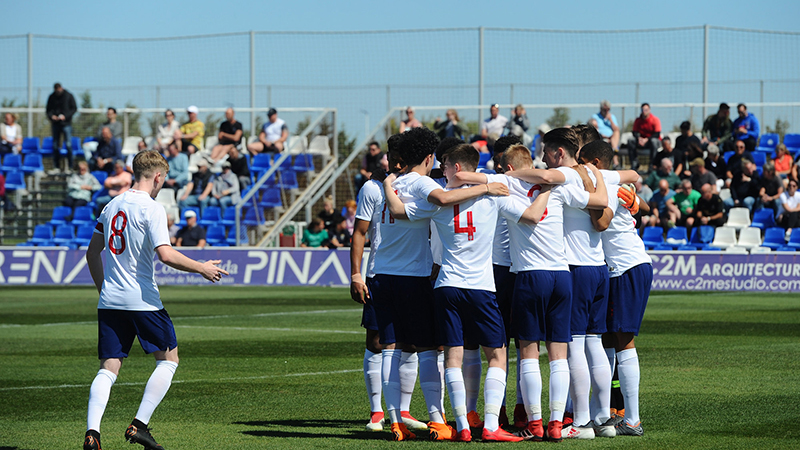England insight

5 insights into the England development pathway
- Peter Glynn
- 30 April 2018
Matt Crocker, FA head of development team coaching, outlines 5 key changes to the England development pathway over the last few years.
1. Time, infrastructure and people
Lots of good work was done by the staff before I joined the FA, but the biggest and most significant change over the last few years has been the infrastructure we have been able to build around the development squads.
Each of our head coaches, specialist coaches and support staff across all of our teams are full-time. This means we can allow them to be dedicated to one specific role. In the past, national coaches may have had responsibilities for coach education as well as working with a team.
Making all our staff full-time means we can plan more effectively. The planning for each event is incredibly detailed as we now have the time, infrastructure, and people to do it. It is a hugely significant part of the programme.

2. The specialist coaching model: individual and unit specific work
We now have specialist in and out of possession coaches who work with individuals and units within the team.
Training sessions may start with a unit-specific warm-up where each unit will work with their own coach on an element of the game-plan.
During the session the strikers might be working on intricate play around the box, midfielders on getting in between lines and the defenders might be working on ball speed when switching play. Each aspect links to the game-plan for the forthcoming game and also the players’ individual development plans.
We then take that into the team room, where the specialist coaches will work with individual players to discuss video clips from training and matches and look at what they can do better next time. The coaches will ask questions that help them come up with their own conclusions about how they can get better.
We believe the focus on individual work can help support the clubs to allow the players to be the best they can be – both on and off the grass. We have the resource and speciality to be able to do that.
3. Ownership and responsibility
The players now take far much more control of the development programme, including how we prepare for games.
For example, the game plan used by Steve Cooper’s U17 World Cup final team [now U18s] against Spain was prepared by the players.
The players were given some footage of the opposition during the build-up to the game and through their unit meetings and work with the specialist coaches they developed objectives linked to in and out of possession to beat Spain.
The players own and drive that content and are facilitated and supported by the coaches. This culminates in the creation of a game-plan which then gets taken from the team room out onto the grass to help prepare the players.
When the U17s were 2-0 down in the final the players were able to keep calm because they had created the game plan and actually believed in it. It is a big difference than simply being told what to do.
The game plans aren’t there for when things are going well, they are there for when things are going wrong. The U17s were a great example of a group that didn’t panic and knew how to stick to the plan in order to win the game.

4. Defining each stage of the journey
We set clear deliverables for each of the age-groups from U15 all the way through to the senior team. It means everybody involved with each age-group is clear what needs to be achieved over the season.
For example, the objective for the U15 year is talent identification. It is about us looking at and profiling 75 players across the age-group.
We invite the players in and give them an experience of the England DNA and how we work – but it is also an opportunity for us to get to know them. We learn what they are like technically/tactically, physically, psychologically and socially.
When the players get to U17 we ensure that the data collected in the previous two years enables us to inform the best squad selection.
We want our decisions to be based on the bank of information we have collected along the player’s journey since they started with England at the start of their U15 year.
5. An improved review process
We now spend a lot of time reviewing how games went with the players and staff. This then shapes the planning of the next event.
The planning ensures each age-group builds on the work done from the year before. For example, the U15s camp will not look the same as the U16s camp, but it will build on the work that has been done. It is about adding another layer of experience for the players.


























